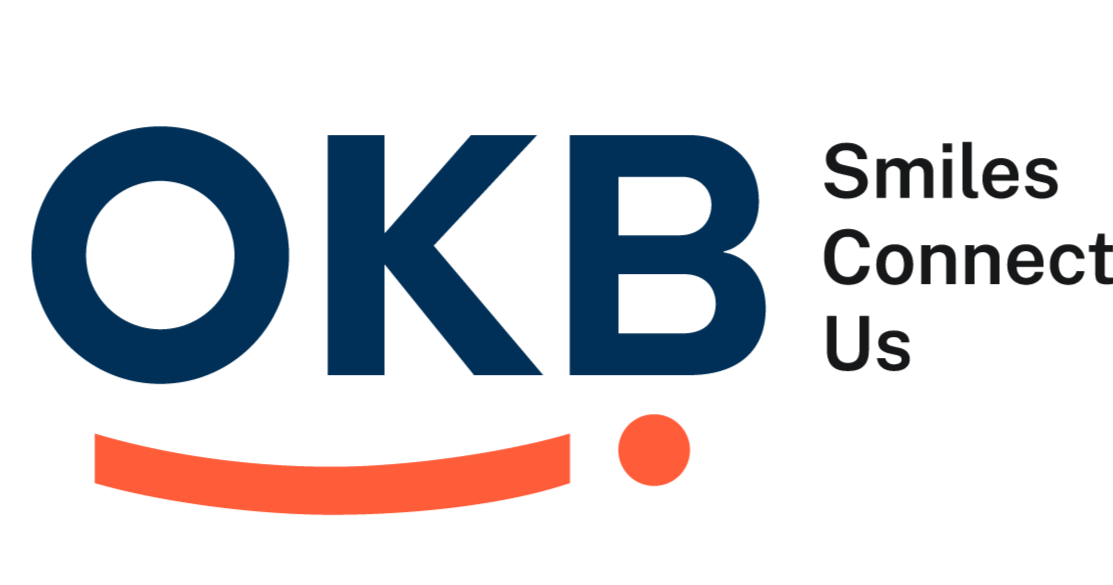Hearing loss is one of the most common health conditions among older adults in the United States. According to national surveys, nearly one in three people between ages 65 and 74 experience hearing loss, and that number increases to almost half for those over 75. Yet, despite how common hearing challenges are, access to affordable hearing aids has long been a struggle.
Many seniors expect Medicare to help cover the cost of hearing care, only to discover the rules are far more complicated. While Medicare does cover some diagnostic hearing services, it generally does not cover hearing aids themselves. This leaves patients paying thousands of dollars out of pocket—unless they find other ways to get financial help.
In this article, we’ll break down everything you need to know about Medicare and hearing aids, including:
-
What Original Medicare (Parts A and B) does and does not cover
-
How Medicare Advantage (Part C) may help with hearing aid costs
-
Why hearing aids are still excluded under most plans
-
The rise of over-the-counter (OTC) hearing aids and online options
-
How to shop smart when buying hearing aids online
-
Tips to maximize your benefits and reduce out-of-pocket costs
Understanding Medicare: The Basics
Medicare is a federal health insurance program primarily for people aged 65 and older, though it also covers some younger individuals with disabilities. To understand how hearing aid coverage works, it’s important to look at the different parts of Medicare:
-
Part A: Hospital insurance (covers inpatient stays, skilled nursing, hospice, some home health care).
Part B: Medical insurance (covers outpatient care, preventive services, doctor visits, some medical equipment). -
Part C (Medicare Advantage): An alternative way to get Medicare coverage through private insurers. These plans often bundle in extra benefits like vision, dental, and sometimes hearing.
-
Part D: Prescription drug coverage.
Hearing aids and most routine hearing exams fall into a gray area within this system. Let’s look more closely.
Does Original Medicare Cover Hearing Aids?
The short answer is: No, Original Medicare (Parts A and B) does not cover hearing aids.
-
Part A: Because hearing aids are not hospital-based services, Part A does not apply.
-
Part B: While Part B covers medically necessary diagnostic tests—like an exam if your doctor suspects you have hearing loss due to another condition—it does not pay for the actual hearing aids or the routine exams required to fit them.
This gap in coverage often surprises patients. You may get tested for hearing loss with Part B coverage, but if you need devices to correct it, the cost is yours to bear.
Why Doesn’t Medicare Cover Hearing Aids?
The exclusion of hearing aids dates back to Medicare’s founding in 1965. At that time, policymakers considered hearing aids to be “routinely needed and low-cost” items, similar to eyeglasses. They assumed people could pay out of pocket. Of course, that assumption is outdated today, as modern digital hearing aids often cost $2,000 to $5,000 per pair.
Despite pressure from advocacy groups and some lawmakers, attempts to expand Medicare to cover hearing aids have stalled. Cost concerns and the challenge of redesigning Medicare benefits have kept hearing aids excluded from standard coverage.
Medicare Advantage (Part C) and Hearing Aids
While Original Medicare does not cover hearing aids, many Medicare Advantage (Part C) plans offer at least partial coverage. Because these plans are offered by private insurers, the details vary widely:
-
Some plans provide an annual allowance (for example, $1,000 every two years toward hearing aids).
-
Others offer discount programs through partner networks of audiologists and hearing aid providers.
-
A few may cover a specific brand or model at reduced cost.
If you are shopping for a Medicare Advantage plan and hearing coverage is important to you, it’s critical to compare plan details carefully. Look for:
-
Whether hearing exams are included
-
How much allowance is provided and how often
-
Whether you must use in-network providers
-
Whether coverage extends to online or OTC hearing aids
Medicare Supplement (Medigap) and Hearing Aids
Some seniors pair Original Medicare with a Medigap plan, which helps cover costs like deductibles and coinsurance. However, Medigap does not cover hearing aids either. Medigap only fills in gaps for services already covered by Medicare—it does not expand benefits to excluded items like hearing aids.
Over-the-Counter (OTC) Hearing Aids: A Game Changer
In 2022, the FDA approved a new category of over-the-counter (OTC) hearing aids available without a prescription. These devices are designed for adults with mild to moderate hearing loss and can be purchased directly online or at retail stores.
This change is significant because it lowers both barriers to access and costs. While traditional prescription hearing aids require multiple visits to an audiologist (with fees that add up), OTC hearing aids can be purchased more affordably, often in the $300 to $1,000 range per pair.
For seniors navigating Medicare’s lack of coverage, OTC hearing aids present a real opportunity:
-
Lower cost upfront
-
Direct online purchase options
-
No need for medical referral
Of course, OTC hearing aids are not for everyone. People with severe hearing loss or complex medical conditions may still need prescription devices fitted by a professional
Buying Hearing Aids Online: Benefits and Considerations
With Medicare not covering hearing aids, more and more seniors are turning to online purchases. This trend has accelerated with the growth of OTC hearing aids and the convenience of e-commerce.
Benefits of Buying Online
-
Affordability: Online sellers often bypass middlemen, offering lower prices.
-
Transparency: Easy to compare features, reviews, and costs.
-
Convenience: Delivered directly to your door without repeated office visits.
-
Wider selection: From basic amplifiers to advanced digital aids with Bluetooth features.
Things to Watch Out For
-
Quality assurance: Stick to reputable brands that meet FDA standards.
-
Return policies: Look for a money-back guarantee in case the fit or performance isn’t right.
-
After-sales support: Check if the seller offers customer support or adjustment services.
-
Scams and knock-offs: Unfortunately, low-cost hearing amplifiers often masquerade as true hearing aids. Always verify product legitimacy.
How Much Do Hearing Aids Really Cost?
On average, hearing aids can cost anywhere from $1,000 to $4,000 per ear, depending on the technology, features, and provider. Buying from a traditional audiologist clinic usually falls on the higher end due to service bundles (fitting, adjustments, follow-ups).
Online and OTC options are bringing costs down significantly. Many reputable online platforms now sell FDA-approved hearing aids in the $500 to $1,500 range per pair. While this is still a financial investment, it is far more accessible than legacy models.
Why Access to Hearing Aids Matters
Untreated hearing loss is more than an inconvenience—it can lead to serious health consequences. Studies show that untreated hearing loss is linked to:
-
Social isolation and loneliness
-
Cognitive decline and dementia risk
-
Increased fall risk
-
Depression and anxiety
For Medicare beneficiaries, the stakes are high. Hearing aids don’t just improve communication; they improve overall health and quality of life. That’s why finding affordable solutions is critical.
How to Maximize Your Medicare Benefits for Hearing Care
While Medicare may not cover hearing aids, you can still maximize your benefits by being strategic:
-
Use Part B for diagnostic exams
If your doctor suspects a medical condition related to hearing loss, Medicare Part B will cover diagnostic tests. This can save you hundreds of dollars compared to paying out of pocket. -
Explore Medicare Advantage (Part C) plans
Before open enrollment, compare plan benefits carefully. Some plans offer partial coverage or discounts on hearing aids. -
Leverage HSA or FSA funds
If you are still working and eligible, pre-tax funds can offset hearing aid costs. -
Look for Veterans Affairs (VA) benefits
If you’re a veteran, you may qualify for free or discounted hearing aids through the VA. -
Check state and nonprofit programs
Some states and nonprofit organizations offer hearing aid assistance programs for seniors.
Online Hearing Aid Shopping Tips for Seniors
If you’re considering purchasing hearing aids online, follow these tips to protect your investment and get the best results:
-
Start with a hearing test: Even an online hearing screening can give you a baseline.
-
Choose FDA-approved devices: Avoid amplifiers marketed as “hearing aids” without FDA clearance.
-
Read reviews carefully: Look for verified customer experiences, especially regarding comfort and durability.
-
Understand return policies: A trial period is essential—you need time to see if the aids truly help in daily life.
-
Don’t overpay for unnecessary features: Bluetooth streaming may be nice, but sound clarity should come first.
The Future of Medicare and Hearing Aid Coverage
Policy debates continue around whether Medicare should expand to cover hearing aids. In 2021, a proposal was included in a major budget bill to add hearing coverage to Medicare. However, it was cut from the final legislation due to cost concerns.
Advocates argue that expanding hearing coverage would improve seniors’ quality of life and reduce long-term health costs associated with untreated hearing loss. Whether future reforms succeed remains to be seen. For now, Medicare beneficiaries must look to Medicare Advantage plans, OTC devices, and online purchasing to fill the gap
Conclusion: Taking Control of Your Hearing Health
If you are a Medicare beneficiary struggling with hearing loss, the current system may feel frustrating. Original Medicare won’t cover hearing aids, Medigap won’t either, and Medicare Advantage coverage varies widely.
The good news is that you have options. The rise of OTC hearing aids and reputable online platforms has made hearing care more affordable and accessible than ever. By understanding your Medicare benefits, comparing plans carefully, and shopping smart online, you can find a solution that fits both your needs and your budget.
At OKB Hearing, we believe hearing health is essential to overall well-being. Don’t let outdated policies or high price tags hold you back. Explore your options, ask questions, and take the first step toward clearer conversations and a fuller life.





Share:
8 Things About In-Ear Hearing Aids — A Complete Guide